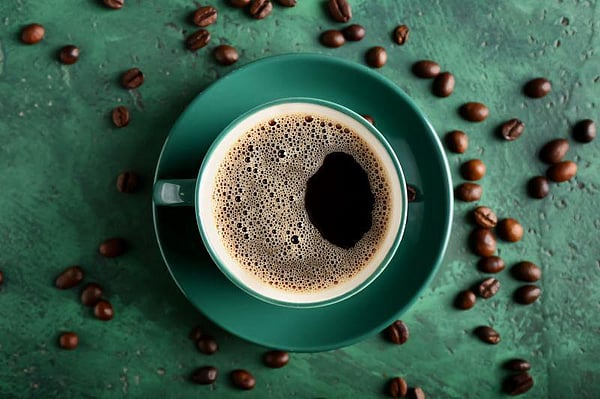Causal Link ID’d for Plasma Caffeine Concentration With Adiposity

WEDNESDAY, March 15, 2023 (HealthDay News) -- There is a causal association for plasma caffeine concentrations with adiposity and risk for type 2 diabetes, according to a study published online March 14 in BMJ Medicine.
Susanna C. Larsson, Ph.D., from the Karolinska Institutet in Stockholm, and colleagues conducted a two-sample Mendelian randomization study using genome-wide association study summary data for two single nucleotide polymorphisms associated with plasma caffeine at the genome-wide significance threshold and their association with outcomes among individuals of European ancestry.
The researchers found that higher genetically predicted plasma caffeine concentrations were associated with lower body mass index (beta, −0.08 standard deviation [SD], where 1 SD equals about 4.8 kg/m2 in body mass index, for every SD increase in plasma caffeine) and whole-body fat mass (beta, −0.06 SD, where 1 SD equals about 9.5 kg), but not fat-free mass. In two consortia, higher genetically predicted plasma caffeine concentrations were associated with a lower risk for type 2 diabetes (combined odds ratio, 0.81). Overall, 43 percent of the effect of caffeine on type 2 diabetes was estimated to be mediated via the reduction in body mass index. Genetically predicted plasma caffeine concentrations were not strongly associated with a risk for any of the studied cardiovascular diseases.
"This mendelian randomization study found evidence to support causal associations of higher plasma caffeine concentrations with lower adiposity and risk of type 2 diabetes," the authors write. "Randomized controlled trials are warranted to assess whether noncaloric caffeine containing beverages might play a role in reducing the risk of obesity and type 2 diabetes."
One author disclosed financial ties to Novo Nordisk.
Related Posts
Mas evidencias de que los monitores de actividad pueden mejorar la salud
MARTES, 26 de julio de 2022 (HealthDay News) -- Su monitor de actividad,...
Esta no es la primera vez: cómo la vacuna contra el polio le salvó la vida a millones de niños
MARTES, 2 de noviembre de 2021 (HealthDay News) -- Una infección que puede dejar...
Physician’s Briefing Weekly Coronavirus Roundup
Here is what the editors at Physician's Briefing chose as the most important...
FDA Panel to Weigh Improved Booster Shots From Moderna, Pfizer
MONDAY, June 27, 2022 (HealthDay News) -- A U.S. Food and Drug Administration...
